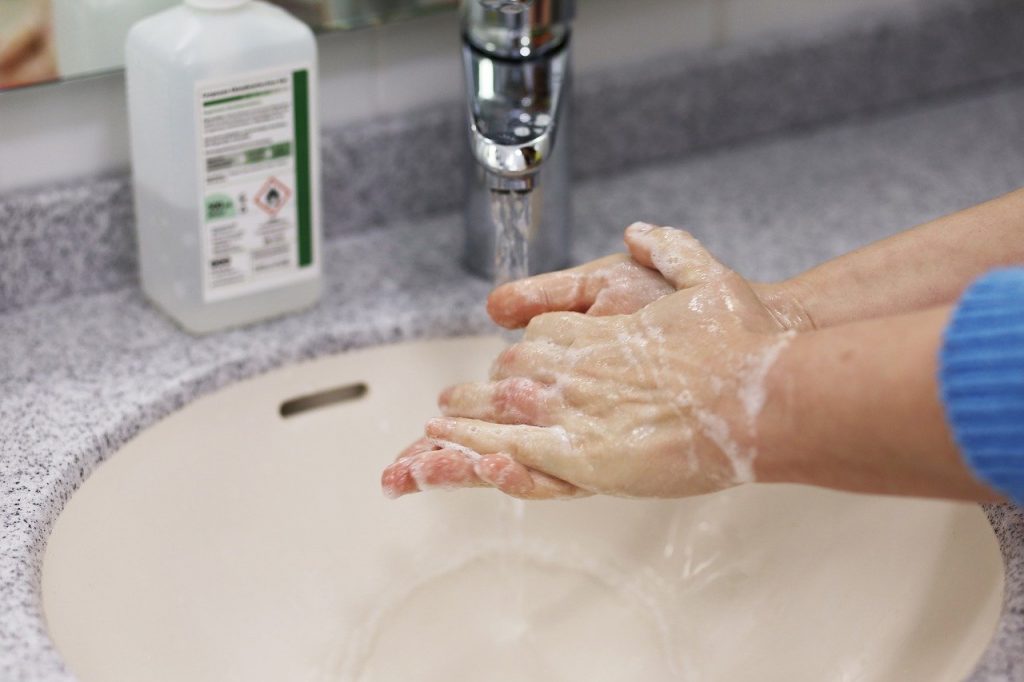It already looks like 2020 will be a difficult year for business, whatever industry you’re in. Currently, with the coronavirus outbreak affecting almost every country on the planet, many business owners will be wondering how to minimise the damage and keep their heads above water, so to speak. Businesses that haven’t had to close might be looking at how their marketing is going to continue to work during this outbreak, and wondering where they can save some of their valuable advertising budget.
Our data shows some of the most affected industries as a result of the coronavirus outbreak are:
- Travel
- Events
- Medical
- Repairs and maintenance
- Photography
- Marketing agencies
- eCommerce
- Diving

However, there are plenty of businesses that will likely find that the coronavirus outbreak can work in their favour. In fact, with the high street shut down in many places, and delivery companies working overtime, online is increasingly the place to go for basic supplies, entertainment, and our retail fix. So how can you manage your PPC ads and your online marketing in general during this global crisis?
Social media
As of March 2020, more and more countries and regions have been introducing restrictions on their citizens being able to go outside. Entire countries such as Italy, Spain, Belgium, France and China are unable to leave their homes, with many spending a large amount of time on social media and the internet in general.
It’s a good time to work on your company’s social media strategy and grow your audience, especially with the relatively captive audience globally. Whatever your industry, managing your brand visibility is always a good plan and social media marketing offers a great base for your future marketing plans.
Some tips to manage your social media marketing during the coronavirus outbreak:
- Consistent engagement with your customers across social media platforms – keep the conversation going
- Don’t focus on selling, but on visibility – offer entertaining blog shares, good news and shareable content instead of focusing on the hard sell
- If possible, offering support to your local community is always a good way to build engagement. Supporting local health workers or the elderly is a great way to show you care
- Do some research into how your customer base might be using their social media during this time and see if there is a way to leverage this for your social media visibility
Focus on existing content
With the switch to remote working for many businesses, almost every single blogger and business is focusing on a ‘how to work remotely’ checklist blog post. You don’t need to do that, because you’ve already got a ton of great content, right?
Go back to your content and work on optimising the heck out of it. If you’re not already an SEO expert then take a look at your blog posts and follow this simple checklist:
- Optimise for 2 or 3 keywords per blog post, but make sure each post focuses on a different keyword set
- Add alt tags to your images (which a lot of businesses miss out on)
- Update information and straighten out grammar, typos etc
- Make it look pretty!
Updated content ranks better for organic, so keep your existing content fresh and clean. During the coronavirus outbreak, you might also identify other marketing opportunities for your content, so it’s also a great time for creating a strategy for fresh content.
Pay per click ads
Understandably, some businesses will probably have already pressed pause on their PPC ads during the coronavirus outbreak. But, for those still running Bing or Google Ads, there can be some great opportunities at the moment.
We mentioned some of the businesses looking at a downturn at the top of this article, but there are plenty seeing a boom as a result of the crisis. In fact, Amazon has reported some of it’s best figures ever, and companies offering home delivery for a lot of different products and services will likely find that their PPC ads are working overtime right about now.
Our data also suggests that during this time, cost per click has in fact been going up, not down in many industries. So how can you manage this as part of your marketing strategy during the coronavirus outbreak?
- Focus on the products or services that are most popular or effective at this time (and those you still have in stock!)
- Take a close look at your data as things like effective keywords, geo-targeting and even timings have probably all changed
- Which part of the funnel is most effective at the moment? You might find that people are looking for exactly what they need right now, so TOFU marketing might be less effective
- Keep an eye on your ROAS/ROI over the coming weeks or months. Understanding what is working and what isn’t, and reacting accordingly, will be an even more important part of managing your marketing budget than usual
As always, running PPC ads means there is likely to be click fraud and ad fraud happening on your campaigns. Unfortunately, with most of the fraudulent activity automated, click fraud doesn’t respect global disruption and carries on as normal. And, with the heightened cost per click across many keywords, if anything this is a big opportunity for click fraud and ad fraud networks.
As part of your marketing strategy during coronavirus, you will still find that anti-click fraud protection saves you money and ensures your ads are seen by the people you want to see them. If you’ve not used ClickCease, or other click fraud prevention software before then you can sign up for a free trial and see how much of a difference it can make.
Working safely during the covid-19 outbreak
Whatever industry you’re in, it’s a difficult time to run a business, let alone a marketing campaign. Although there are a million sites offering their safe working tips during the coronavirus outbreak, here are ours:

- Follow WHO and government advice about how to handle the ongoing crisis
- Wash your hands for at least 20 seconds as often as possible, especially if you need to go outdoors, visit shops, be people facing etc
- Don’t stockpile goods as this puts more of a strain on local infrastructure
- If possible, work from home or from an isolated location to minimise exposure to others
- Only call your local health service if absolutely necessary
- Stay indoors unless it’s absolutely necessary to go out and avoid things like public transport or other areas where people may gather
We’re all in this together, so remember to maintain social distancing, clean your hands and, if you’re still working in a public workplace, clean those work surfaces regularly. Stay safe everyone!
